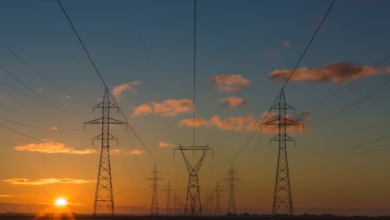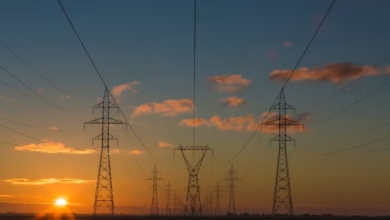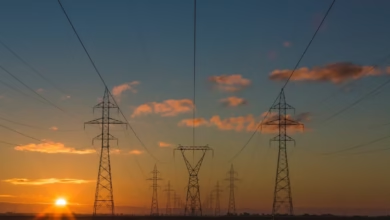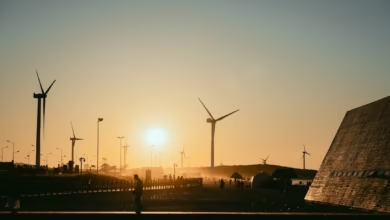Harnessing the Power of the Sun: How Distributed Energy and Rooftop Solar Panels are Shaping the Future of Renewable Energy

In recent years, the shift towards distributed energy systems has gained significant momentum, reshaping the landscape of renewable energy generation. With the proliferation of rooftop solar panels, individuals and communities are no longer just passive consumers of energy; they are becoming active participants in the energy transition. This decentralization of energy production not only empowers consumers but also plays a crucial role in enhancing energy efficiency and security. As we navigate the complexities of energy markets, the integration of decentralized systems is proving vital in reducing our reliance on fossil fuels and advancing innovative solutions to combat climate change.
In this article, we will explore the rise of distributed energy, examining how technologies like solar power, wind energy, and energy storage are revolutionizing the way we generate and consume energy. We will delve into the latest energy innovations driving this transformation, from smart grids to hydrogen energy, and assess their impact on energy policy and economics. Finally, we will discuss the implications for global energy trends, including the role of distributed energy in fostering a sustainable future through reduced carbon emissions and enhanced energy exports. Join us as we uncover the potential of decentralized energy systems to not only meet our current energy demands but also pave the way for a greener, more resilient energy future.
- 1. The Rise of Distributed Energy: Transforming Renewable Energy Generation with Rooftop Solar Panels
- 2. Energy Innovations in the Energy Transition: How Decentralized Systems Enhance Energy Efficiency and Security
- 3. Navigating Energy Markets: The Role of Distributed Energy in Reducing Fossil Fuels and Advancing Climate Change Solutions
1. The Rise of Distributed Energy: Transforming Renewable Energy Generation with Rooftop Solar Panels
The transition towards distributed energy generation has gained significant momentum in recent years, primarily driven by the increasing accessibility and affordability of renewable energy technologies, particularly rooftop solar panels. This shift reflects a broader global energy trend where consumers are no longer passive recipients of energy but active participants in energy production. The rise of decentralized energy systems is facilitating a substantial transformation in how we generate and consume energy, challenging the traditional dominance of fossil fuels and nuclear energy.
Rooftop solar panels exemplify the democratization of energy production, allowing households and businesses to harness solar power for their own use. This not only enhances energy efficiency but also contributes to energy security by reducing dependence on external energy imports. The integration of energy storage solutions is further enhancing the viability of distributed energy systems, enabling users to store excess energy generated during sunny days for use during peak demand times or when the sun is not shining.
Moreover, renewable energy sources such as wind energy and hydropower are increasingly being combined with solar power to create hybrid systems that optimize energy generation. These innovations in energy R&D are essential for achieving a successful energy transition towards greener alternatives, minimizing carbon emissions, and combating climate change. As energy markets evolve, policies that support distributed energy generation are crucial for incentivizing investments in clean energy technologies and infrastructure.
The emergence of smart grids plays a pivotal role in this transition, facilitating efficient energy transportation and distribution. By leveraging real-time data and advanced technologies, smart grids enhance the reliability and resilience of energy systems, paving the way for greater integration of renewable energy sources. Furthermore, the growth of electric vehicles and the development of hydrogen energy technologies represent exciting opportunities to further diversify energy portfolios and enhance energy economics.
In conclusion, the rise of distributed energy, particularly through rooftop solar panels, is a significant step towards a sustainable energy future. By embracing renewable energy solutions and investing in energy innovations, we can collectively move towards a more resilient and sustainable energy landscape that prioritizes both energy security and environmental stewardship.
2. Energy Innovations in the Energy Transition: How Decentralized Systems Enhance Energy Efficiency and Security
The energy transition is a critical phase in addressing climate change and moving towards a sustainable future. Among the innovations transforming this landscape, decentralized energy systems, such as rooftop solar panels, stand out for their ability to enhance energy efficiency and security. By shifting from traditional centralized power generation, which relies heavily on fossil fuels and nuclear energy, to distributed energy solutions, we can significantly reduce our carbon footprint while improving the resilience of energy supply chains.
Decentralized energy generation allows individuals and businesses to produce their own electricity using renewable sources such as solar power and wind energy. This shift not only promotes energy efficiency by reducing transmission losses associated with long-distance energy transportation but also empowers consumers to actively participate in energy markets. As energy policy evolves, incentives for adopting green energy technologies are becoming more prevalent, driving investments in energy R&D and innovations.
Moreover, decentralized systems contribute to energy security by diversifying the energy mix and minimizing reliance on single-source power generation. By integrating energy storage solutions, such as batteries and thermal energy systems, users can store excess energy produced during peak generation times for use during periods of high demand or low production. This capability is particularly vital in balancing the intermittent nature of renewable energy sources like solar and wind.
As global energy trends shift towards sustainability, decentralized energy systems are increasingly viewed as essential components of energy economics. They facilitate the adoption of electric vehicles and support the development of smart grids that optimize energy distribution and consumption. Furthermore, innovations in hydrogen energy and bioenergy are expanding the possibilities for clean energy, creating a more resilient energy infrastructure.
In summary, decentralized systems are revolutionizing the energy landscape by enhancing energy efficiency, improving energy security, and supporting the broader goals of the energy transition. As we continue to innovate and integrate diverse energy sources, we pave the way for a more sustainable future that not only addresses climate change but also strengthens energy resilience for generations to come.
3. Navigating Energy Markets: The Role of Distributed Energy in Reducing Fossil Fuels and Advancing Climate Change Solutions
The transition towards distributed energy systems is crucial in navigating energy markets and addressing the pressing challenges of climate change. As nations strive to reduce their reliance on fossil fuels, decentralized energy generation, such as rooftop solar panels, plays a vital role in promoting renewable energy solutions. By harnessing local resources, communities can not only decrease their carbon footprint but also enhance energy security and resilience against market fluctuations.
Distributed energy empowers consumers to generate their own electricity, significantly impacting energy economics. This shift reduces dependence on traditional fossil fuel sources, which are often subject to volatile prices and geopolitical tensions. As more households and businesses invest in solar power and wind energy, the demand for fossil fuels diminishes, fostering an environment conducive to energy efficiency and sustainability.
Moreover, the integration of advanced technologies like smart grids and energy storage systems enables more effective management of energy supply and demand. These innovations facilitate the use of intermittent renewable energy sources, ensuring a balanced and stable energy supply. For instance, energy storage technologies can store excess solar power produced during the day for use in the evening, thereby optimizing energy consumption.
In addition to supporting renewable energy initiatives, distributed energy systems can also drive advancements in other sectors such as electric vehicles (EVs) and hydrogen energy. The increased deployment of EVs aligns with the goals of energy transition, as they can be powered by renewable sources, thus further reducing greenhouse gas emissions. Additionally, the potential for hydrogen energy, derived from renewable sources, offers a promising avenue for energy transportation and storage.
To maximize the benefits of distributed energy, supportive energy policy and investment in energy R&D are critical. Governments must create regulatory frameworks that encourage the adoption of green energy technologies while promoting energy exports and imports that align with climate goals. By prioritizing energy innovations, nations can effectively combat climate change while fostering economic growth through new job opportunities in the renewable energy sector.
In summary, navigating the energy markets through distributed energy solutions not only aids in reducing fossil fuel consumption but also contributes to a comprehensive approach to climate change mitigation. By embracing renewable energy, enhancing energy efficiency, and investing in advanced technologies, we can pave the way for a sustainable energy future that prioritizes both environmental and economic resilience.
In conclusion, the shift towards distributed energy generation, particularly through the widespread adoption of rooftop solar panels, represents a pivotal evolution in our approach to renewable energy. As we navigate the complexities of energy markets and seek to reduce our dependence on fossil fuels, the integration of decentralized systems not only enhances energy efficiency but also bolsters energy security. Innovations in energy storage and smart grids are crucial in supporting this transition, allowing for a more reliable and resilient energy infrastructure.
Furthermore, as global energy trends continue to evolve, the role of distributed energy in combating climate change cannot be overstated. By embracing diverse energy sources, including wind energy, hydropower, and bioenergy, we can create a more sustainable future. Energy policy and investment in research and development will be essential in fostering advancements in carbon capture and hydrogen energy, driving us closer to a carbon-neutral economy.
Ultimately, the transition to distributed energy is not merely a trend; it is an essential component of our collective response to the climate crisis. By prioritizing green energy solutions and innovative technologies, we can cultivate a robust energy landscape that supports both economic growth and environmental stewardship. As we move forward, collaboration among stakeholders will be key to harnessing the full potential of renewable energy and ensuring a cleaner, more sustainable future for generations to come.





